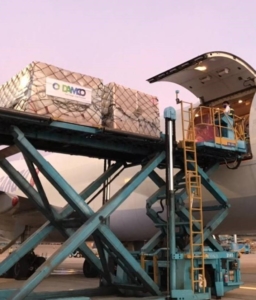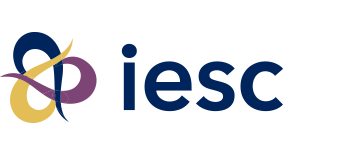USAID Assists Vietnamese Garment Factories to Respond to the COVID-19 Global Demand Surge for Personal Protective Equipment (PPE)
The COVID-19 pandemic is a global health crisis and one of the greatest challenges humanity has faced in the past century. Since its emergence in late 2019, the virus has spread to every continent except Antarctica. More than 23 million people worldwide have been infected with COVID-19 and more than 1,000,000 have lost their lives to the disease. As the pandemic broke, hospitals found themselves simultaneously facing unprecedented patient surges and acute shortages of personal protective equipment (PPE). As a result, many frontline healthcare workers and first responders across the globe had to start the fight to contain the COVID-19 outbreak without the protection they needed. 
USAID/Vietnam, through its Linkages for Small and Medium Enterprises (USAID LinkSME) project, responded through an interagency task force established to help address the critical shortage of PPE through supply side interventions. In close coordination with the Government of Vietnam and business support organizations (BSOs), USAID LinkSME quickly identified more than 200 Vietnamese suppliers of protective equipment and developed a database of their production capabilities for gowns, coveralls, gloves, goggles, respirators, quick tests, and other PPE products. The project also identified dozens of international buyers of PPE.
Two constraints became clear. First, the kind of nonwoven fabrics that were suitable for PPE were not being produced locally, and traditional import supplies had been disrupted. Second, Vietnam’s existing PPE suppliers were already connected into supply chains and selling all the PPE products they could make to their existing customers. The project responded to each of these constraints by shifting some focus towards cultivating new linkages with other nonwoven fabric suppliers in the region and then broadening the supplier outreach strategy to include garment factories that had idle cut and sew capacity. Garment companies needed to find an alternative use for their factories because the COVID-19 pandemic had triggered a collapse in the global demand for apparel.
As a result of its initial efforts and subsequent shifts in approach, USAID LinkSME facilitated PPE linkages. For example, a U.S. health supply company placed several orders for non-surgical gowns and head and shoe covers from an established Vietnamese garment manufacturer. USAID LinkSME provided technical assistance to the supplier on quality production and logistics for the successful shipment of 2,250,000 gowns, 145,000 head covers, and 250,000 shoe covers with a total value of $3,957,500. The project also helped to facilitate purchase orders from a large buyer in Europe totaling more than 100 million non-surgical gowns, which secured a full production schedule for the supplier through the end of 2020.
By the time the initial linkages were established, the global supply chain networks of the apparel industry had started independently coming to Vietnam to utilize the massive cut and sew capacity of hundreds of large, idle garment factories. As these industry initiatives to use idle Vietnamese factories for PPE started scaling up, USAID LinkSME was able to pull back on its crisis-oriented support and move into activities that supported longer-term development of PPE suppliers and supply chains.
The USAID LinkSME program is funded by USAID Vietnam. The program aims to build the capacity of Vietnamese business support organizations to advance linkages between Vietnamese small and medium enterprises and lead firms, thereby enhancing the capacity of SMEs to participate in global supply chains. Improved and increased business linkages will help Vietnamese firms generate jobs, improve livelihoods, and encourage entrepreneurial innovation. Additionally, the project will reduce major barriers limiting SME growth across Vietnam and will help to institutionalize key reforms and changes to strengthen the institutional framework for SME growth across the nation.



